2015 Environmental Merit Award Recipients
- Dedication
- Welcome
- Lifetime Achievement
- Ira Leighton "In Service to States"
- Individual
- Environmental, Community, Academia, & Nonprofit
- Governmental
- Business, Industry, Trade or Professional
- Federal Green Challenge
- President's Environmental Youth Award (PEYA)
- Special Recognition
- Special Thanks
Dedication
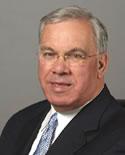
Thomas M. Menino
(posthumous)
As mayor of Boston for 20 years, Thomas Menino dedicated his time and energy to making Boston a better place to live, work and visit. Because of his robust environmental agenda, the city reduced greenhouse gas emissions, emerging as a national leader in climate action, and was first in the nation to adopt a green buildings standard for large private developments. Tom Menino made it easier for all Bostonians to be more sustainable, and initiated programs that have made Boston a great biking and walking city. Under his leadership, Mayor Menino established Boston as a national leader in urban sustainability, to the benefit of current and future generations for years to come. For his strong environmental advocacy in putting Boston on course to being the most climate prepared and resilient city in the country, EPA wishes to commemorate this award ceremony to him.
Welcome
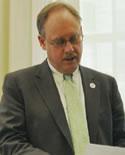
Welcome to the 2015 Environmental Merit Awards Ceremony
Congratulations to all of our 2015 Environmental Merit Award Winners. These awards recognize many of the people and organizations that are making real environmental progress in New England.
We live in a time where our environmental challenges are paramount, and yet, the struggle for adequate resources is evident. Collectively, we have an obligation to leave our kids with a safe, healthy environment to live in. That means we must come together, be creative and implement sustainable, cost-effective environmental solutions. You have all been working to do just that, and I hope we can continue to work together as we keep pushing forward on high priority challenges like Climate Change.
Today is Earth Day, a fitting time to celebrate all of our Environmental Merit Awardees for your environmental stewardship, activism, support and dedication. Your work is something the staff at EPA New England is very proud of. Thank you for being the stewards you are.
Congratulations to all of today's winners.
Sincerely,
Curt Spalding
Regional Administrator, EPA New England
Lifetime Achievement
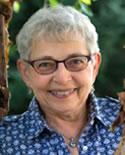
Dr. Mimi L. Becker
University of New Hampshire, Durham, NH
Dr. Mimi Becker has been an outstanding local, regional and international environmental steward for almost 50 years. Beginning with her work in the Great Lakes region in the 1970s and more recently in the New Hampshire Seacoast since the mid-90s, Becker has pursued a professional career and engaged in civic life focused on preserving and restoring ecosystem health. Her legacy can be traced not only to an international environmental treaty between the US and Canada, but also to coastal management and policy in the Gulf of Maine. She has been involved in energy, land use and climate planning and policy in New Hampshire, and watershed management across coastal New Hampshire. Throughout her personal and professional life, she has helped foster an awareness among thousands of people – from residents of Love Canal, NY to international leaders, to undergraduate students young enough to be her grandchildren – about the critical importance of a healthy environment and our responsibility to prevent its destruction. Becker reminded anyone who would listen that we humans are an inseparable part of the natural environment.
During two decades at the University of New Hampshire, Becker mentored and advised many graduate students involved in such topics as Gulf of Maine resource management challenges; funding for programs to link new research to environmental decision making; the role the news media plays in environmental policy-making; and climate change adaptation capacity of rural communities. Becker often met with grad students at 5:30 am for breakfast at a downtown Durham restaurant to examine and challenge thesis goals and progress. Outside of academia, Becker worked with many groups to address natural resource issues. For her efforts regarding watershed management and climate planning within her hometown of Exeter, she was recognized as citizen of the year in 2013. Rather than burning out or becoming cynical, Becker continues to believe we can come together to find a balance between using our coastal resources and protecting them. Her inspirational attitude and dedication to her work, her students, and furthering the field of resource management in New England and beyond makes her worthy of the lifetime achievement award.
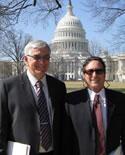
The Team of Bob Phelps (Posthumous) and Jeff Kantor
Auto & Truck Recyclers Association of New Hampshire
Both Jeff Kantor and Bob Phelps have been president of the Auto and Truck Recyclers Association of New Hampshire and both owned motor vehicle recycling facilities committed to environmental excellence. The state Department of Environmental Services awarded both of their facilities with the status of Certified NH Green Yard. Kantor, now an environmental consultant for LKQ Car World in Candia, a salvage yard, and has served on many governmental committees. Phelps was a regional director at-large and a global ambassador for the Automotive Recyclers Association. Phelps passed away in 2014. Kantor and Phelps both were committed to promoting good environmental business practices within the auto recycling industry. As a team they were a power-house dedicated to building relationships between the auto recycling industry and all levels of government. They worked with the state Legislature and US Congress to promote legislation reflecting the modernization of the auto recycling industry and its importance in our nation. Both men were instrumental in helping DES establish the award-winning Green Yards Program, which promotes and recognizes environmental excellence among auto recycling yards. They educated their peers on the advantages of running a facility with environmentally sound and sustainable business practices. In addition to advocating environmental sustainability through federal, state and local regulations and with their peers, Kantor and Phelps worked to improve public perception of the industry through community outreach and an increased understanding of the industry. Kantor is the outgoing "front man" who helps people understand the importance of good environmental practices. He invited students into his business and conducted "show and tell" productions at local schools demonstrating the part a well-run motor vehicle recycling facility plays in environmental protection. Phelps led with a quiet distinction, spending one-on-one time talking about his views on rules, regulations and the state of the industry. Before his untimely death in 2014, he mentored young people, showing them that an environmentally sustainable business can thrive in today's society. Kantor and Phelps spent their careers working to elevate an industry that is neither glamorous nor especially lucrative, but is vitally important to the sustainability of our society. Their commitment to substantive improvements of environmental performance within the automotive recycling industry is their legacy.
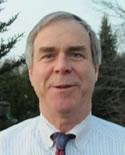
Rich Bizzozero
Office of Technology and Technical Assistance, MA
Rich Bizzozero, director of the Massachusetts Office of Technical Assistance and Technology, has worked in this office and in the state's Toxics Use Reduction Act program for nearly 25 years. In addition, Bizzozero served for eight years as executive director of the Interagency Massachusetts Toxics Use Reduction Administrative Council, the governing body for the toxics law. Bizzozero brings a quiet competence to the job, encouraging participation and leadership in others, while still playing a key role in moving initiatives forward. Under his leadership, the agencies involved in the law are a model of government and academic collaboration and productivity. These agencies have combined their skills, knowledge and roles to build a program that has achieved significant results both in developing policy and in directly helping Massachusetts businesses. Bizzozero became director of the Office of Technology and Technical Assistance during severe state budget cuts and had to reduce staffing by about half. Since then, he has expanded the offices outreach to businesses with a focus on the value of assistance given to companies. His office works with businesses in a variety of sectors, ranging from small woodworking businesses to large biotechnology companies. These businesses have expressed appreciation for the regulatory advice and recommendations, money-saving strategies, recommendations on improved working conditions, and technical solutions that come from Bizzozero's office. In addition to leading his own agency, Bizzozero coordinates a variety of program-wide initiatives. He has been a leader in the effort to categorize toxic or hazardous substances. This policy initiative is a key element of the program's work to extend and expand the benefits of toxics use reduction planning, while providing information that helps businesses make responsible decisions. This state-level effort is particularly important in the context of global advances in chemicals policy. Bizzozero has coordinated interagency communication on toxic chemicals and energy-efficient building practices and helped with an interagency effort to update regulations governing the use of toxic chemicals in cosmetology. Bizzozero recognizes multiple viewpoints, communicates clearly and collaborates with different agencies. Through hard work and dedication to businesses, the public and the environment, Bizzozero has been a model for outstanding service in state government.
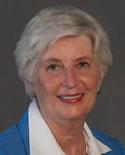
Patricia Widlitz
Guilford, CT
During 20 years in the Connecticut House of Representatives, Patricia Widlitz consistently supported the cause of environ-mental protection and sustain-ability. She was an effective advocate who used her in-depth knowledge of issues, keen understanding of the legislative process, and strong alliances with colleagues to ensure the passage of several landmark pieces of legislation. As a state representative, Widlitz was an early leader on climate change and on programs that got manufacturers to address waste and recycling issues. Widlitz also was a primary sponsor of a law called the Act Concerning Climate Change that established clear targets for emission reductions. The law also established a Governor's Steering Committee on Climate Change and gave the committee the authority to develop a comprehensive, multi-sector Climate Change Action Plan. In 2008, Widlitz led the effort to strengthen Connecticut's focus on climate, with passage of a bill that established emission reductions goals of 10 percent below 1990 levels by 2020 and at least 80 percent below 2001 levels by 2050.
By getting directly involved, Widlitz helped create programs in Connecticut to capture and recycle obsolete electronic equipment, as well as unused and wanted mattresses. She championed legislation that established programs involving manufactures in the effort to keep products out of the waste stream when they are no longer used. As a result of her efforts, Connecticut was among the first states in the nation to have programs for the recycling of e-waste and paint. With her involvement, it also became the first state to pass a mattresses recycling law, which will take effect in May. As chairman of the Connecticut General Assembly's Environment Committee, Widlitz also made certain important other environmental bills made it to the finish line and were signed into law, including, measures to protect Long Island Sound and improve air quality through tighter auto emissions standards. Later, as chairman of the Finance Committee, she helped secure over $1 billion in bond funding for Connecticut's Clean Water Fund, which provides grants and loans for wastewater treatment projects, and tens of millions of bond dollars for buying open space.
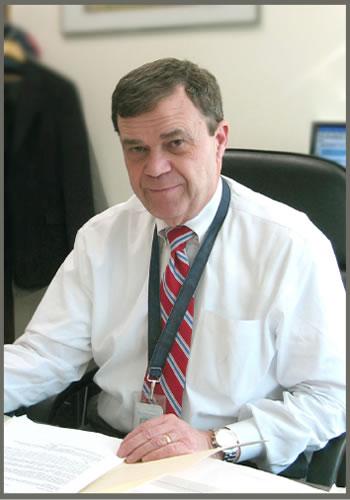 Ira W. Leighton, Jr.
Ira W. Leighton, Jr.1945-2013
Dedicated EPA public servant since 1972
"Over more than four decades of service, Ira's leadership brought innovative solutions to America's conservation challenge and he will be remembered for this commitment to making our environment safer and healthier."
- President Barack Obama
A true friend, a mentor and a lover of New England.
He will be missed.
Ira Leighton "In Service to States"
The New England Interstate Water Pollution Control Commission (NEIWPCC), the Northeast States for Coordinated Air Use Management (NESCAUM), the Northeast Waste Management Officials' Association (NEWMOA), in coordination with the New England state Environmental Commissioners and the United States Environmental Protection Agency, Region 1 (EPA) have initiated the Ira Leighton "In Service to States" Environmental Merit Award as a tribute to our long-time colleague and friend, Ira Leighton, who passed away in 2013, after serving forty-one years at the US EPA. Ira's dedication and passion for protecting the environment was evident to all who knew him. He was a constant presence in New England; a force who took ideas and made them actionable tasks that resulted in measurable improvements.
Saluting the Ira Leighton "In Service to States" Annual Award Recipient

Justin Johnson
The nomination of Justin Johnson for the Ira Leighton Award recognizes his 10 years of service and leadership on environmental issues in Vermont. Johnson was recently appointed Secretary of the Vermont Agency of Administration by Governor Peter Shumlin after serving as Deputy Secretary of Vermont of Natural Resources since January 2013. Before this Johnson was commissioner and deputy commissioner of the Vermont Department of Environmental Conservation, where he began in 2004. His first job Vermont state government was a marketing specialist at the then Department of Agriculture. He has had 18 years of experience in public management and policy development at the federal, state and local level in both the US and Australia, where he was born and raised. Johnson was a senior executive in a large municipal government in Australia serving 140,000 year-round residents and almost 2 million tourists each year and spent three years as chief-of-staff to a member of the Australian House of Representatives.
While at the Vermont Agency of Natural Resources Johnson represented the state on the board of the Regional Greenhouse Gas Initiative, chaired the Mid-Atlantic/Northeast Visibility Union and served as Vermont's lead representative to the Environmental Council of the States. In his spare time he served four years as president of the White River Partnership, and four years on the board of Washington County Farm Bureau. He is now chair of the Finance Committee for the City of Barre. Throughout Johnson's career in Vermont, he has been a strong proponent of ‘good government' and the rule of law in pursuit of the mission of environmental protection. Having served under both Republican and Democratic administrations, he has navigated the complex landscape of environmental regulation in an apolitical and unflappable manner. He developed strong partnerships with EPA, other States, and regulated entities. His deep understanding of how government works coupled with a strong measure of common sense and appreciation of Vermont is best reflected in this recent quote from Johnson: "There are a number of challenges ahead of us, but working together we can build on Vermont's strengths and make this state even greater".
Individual
Tom McNichol
Charles River Clean-Up Boat, Boston, MA
Nicknamed the Fearless Flotsam Fighter by some, Tom McNichol has played a central role in making the Charles River more appealing and healthier. When EPA's Clean Charles initiative launched in 1997, if focused primarily on bacterial contamination from sewage discharges. The river remained littered with soda cans, coffee cups, candy wrappers, plastic water bottles and even an occasional body. In 2003, McNichol, a retired Compaq engineer, launched the Charles River Clean-Up Boat, a non-profit devoted to cleaning debris from the river. In its initial year, Tom and his volunteer crew hauled out several thousand bags of trash. The program has grown each year, and Tom now has a crew of 200 volunteers. These volunteers work six-hour shifts, four days per week, May through November, taking garbage from the river. In addition to rounding up his floating volunteers, Tom has formed partnerships with the MA Department of Conservation and Recreation, which hauls away the collected trash once the recyclables have been culled. He also reaches out to generous folks who appreciate a clean Charles River, raising $45,000 for his annual operating budget. Clear progress has been made. On a trip up the river from Boston to Watertown, you will see only an occasional piece of debris. For his energy and steadfastness in starting and sustaining this valuable cleanup effort, Tom is receiving this environmental merit award as the fearless flotsam fight.
Jean Hill and Jill Appel
Concord, MA
In 2009, Jean Hill's grandson showed her images of the Great Pacific Garbage Patch, a circulating gyre of plastic the size of Texas. Jean's distress over this fueled her determination to do something, and ultimately led to Concord, Massachusetts, banning the sale of plastic water bottles. This accomplishment, featured in an independent film called the Great Concord Divide, passed in 2010, but the state Attorney General threw it out on technical grounds. After that Jean joined with campaign manager Jill Appel and a local attorney, who drafted a bylaw that would pass legal muster. The International Bottled Water Association campaigned vigorously against the ban with a website about the benefit of bottled water and warnings of "dire consequences" if the ban passed. The proposed ban was defeated by seven votes in 2011. Appel and Hill, exhausted and disappointed, were determined to try again. They set up a website and Facebook page, developed a tap water map for visitors, and arranged for local businesses to sell reusable bottles. The water bottle industry stepped up its efforts with a phone campaign and mass mailings, but the law passed in 2012 and went into effect January 2013. The industry worked to rescind the ban but two separate repeal votes failed. The ban has been in place for two years, and visitors still visit, businesses still thrive, and there is less bottled water trash on Concord's roads, thanks to Hill and Appel.
Judith Grinnell
North Adams, MA
Since 2008, Judy Grinnell has worked relentlessly to restore the Hoosic River in North Adams. The bucolic Hoosic River in Williamstown turns into something that looks like a drainage ditch in North Adams and Grinnell was intent on changing that. She envisioned a beautiful river rather than a 2.5-mile waterway constrained by three-sided concrete chutes built to control flooding. The chute, which has controlled flooding, has also prohibited fish passage, stripped the river of aquatic habitat and contributed to heating in an otherwise cold water fisher. Grinnell gathered a group of people who were inspired by her vision of a healthy river flowing freely through the city and together they launched the Hoosic River Revival. The progress has been impressive, with community conversations, river restoration designs and flow modeling. Grinnell raised over $100,000 in private donations and secured many times that in grants, including state for a pilot restoration project and to cover the initial design. In just a few years Grinnell has become proficient in technical details of river restoration, which helped her get funding for a numeric flow model that is critical to the restoration. Grinnell's energy and enthusiasm have inspired many others to join the effort, thus making possible her vision of a beautiful and ecologically healthy river in North Adams.
Bill Kirk
Andover, MA
In August 2012, a small group of volunteers formed the Solarize Andover team, with the goal of increasing town-wide use of solar power by participating in the state's Solarize Mass program. Bill Kirk, assistant editor of the Andover Townsman, was at the first meeting and from that day on led a successful community outreach effort to spread awareness of Solarize Andover. Even before Solarize Andover, Kirk had published several stories on how Andover residents were reducing their carbon footprint by embracing solar energy. Kirk then covered the Solarize Andover program in depth, starting with his first article in October 2013 titled "Solarpower to the People. Kirk's articles brought dozens of new people to the group's website and was crucial to publicizing the program. Without Kirk, the Solarize Andover team could not have reached such a wide audience nor spread the message with so much conviction. Ultimately more than 400 homeowners enrolled in the program, and 88 signed contracts to install a total capacity of 730 kilowatts. Several earlier attempts to promote solar harvesting on town properties had failed due to opposition from residents. Kirk's coverage led to a change of local sentiment. His articles helped Andover residents to commit to an investment of about $2.6 million in solar electric.
Mary B. Griffin
Department of Fish and Game, MA
Mary Griffin has devoted the past 20 years to environmental protection in Massachusetts, and is being recognized for her leadership during 2014, the last year of her 8-year term as Commissioner of the MA Department of Fish and Game. Griffin's achievements last year fall into five areas: protection of wildlife habitat; restoration of ecological resources; defense of the Massachusetts Endangered Species Act; protection of cold water fisheries, and the completion of a green building. Under Griffin's leadership, the department's Land Protection Program, working with the Division of Fisheries and Wildlife, permanently protected 4.414 acres of land, including 597 acres in Wareham and Plymouth. Over her eight-year term, the department protected about 45,000 acres, bringing its total conservation lands to more 200,000 acres. Mary was responsible for the creation in her department of the Division of Ecological Restoration, which has been a national leader in coastal and freshwater restoration, removing dozens of dams to restore natural stream flow and wildlife passage. Griffin made it a top priority to defend her department's regulatory program putting in place the Massachusetts Endangered Species Act. Griffin worked closely with the Department of Environmental Protection in an effort that led to revised regulations minimizing the effect of water withdrawals on cold water fish resources. A tireless advocate for wildlife habitat conservation, Griffin is also recognized for her intellectual depth, genuine altruism, and unfailing respect for differing points of view.
Jacob Park
Green Mountain College, Poultney, VT
Jacob Park, professor of business strategy and sustainability at Green Mountain College has led several environmental efforts but was nominated particularly for his work on climate change education. Two efforts in particular highlight his achievements in this area. In the spring of 2014, Park served as project director and core faculty member on a student project exploring flood resiliency as a community development priority for Rutland County three years after Hurricane Irene. Working with scientists, city planners, government officials and other leaders, Park, along with three faculty members and a group of Green Mountain College students, unveiled a series of recommendations, four key steps to institutionalize local flood resiliency in Vermont. These were: conduct a regional vulnerability assessment for flood and flood-related erosion risks; increase the organizational capacity for emergency management at the local and municipal level; create a community-based regulatory approach to land use planning that does not create new and additional flood and flood-related erosion risks, and prioritize community education and outreach. That summer, in recognition of his leadership in this area, Park, executive director of the Vermont Businesses for Social Responsibility, was also awarded the Community Climate Change Fellowship Award by EECapacity, a national environmental education training program led by Cornell University. Park used the fellowship to work with farmers and agricultural groups on the growing impact of climate change on Vermont food and agricultural issues.
Lori Sommer
NH Department of Environmental Services
Lori Sommer, who has worked for the NH Department of Environmental Services for over 25 years, oversees the Wetlands Mitigation Program. Sommer developed and oversaw a comprehensive new watershed approach to protecting high quality aquatic habitats. She created a new mitigation mechanism, called the In Lieu Fee Aquatic Resource Mitigation – or ARM – Fund, which gives applicants a cost-effective, balanced approach to mitigation while ensuring long-term environmental benefits. The fund has been highly successful, receiving regional and nation attention. Since it began, it has awarded $6.9 million that has protected 10,840 acres; restored 84 acres of wetlands; and restored and enhanced 4,200 feet of streams. Over the last year, Sommer also led an effort to work on climate change and aquatic organism passage. Working with the state Department of Transportation, she spearheaded a process to inventory deficient culverts, or crossings, that fragment streams. These crossings will be replaced or rehabilitated as mitigation for other stream impacts. The culvert mitigation program, a new and promising model of collaboration that uses limited funds for environmental gains, can benefit other state programs.
Tom Borden, Joe Costa, Heather Radcliffe
Southeast New England Coastal Watershed Restoration Program
These three individuals are being recognized for their dedicated and efficient collaboration to launch EPA's new coastal watershed program, which promotes an ecosystem approach to protecting and restoring the coastal watersheds in southeast New England. Tom Borden, program director of the Narragansett Bay Estuary Program; Joe Costa, executive director of the Buzzards Bay National Estuary Program; and Heather Radcliffe, project officer for the New England Interstate Water Pollution Control Commission were dedicated to collaboration across programs and state lines to launch the Southeast New England Coastal Watershed Restoration Program. This program and their work led to 12 projects getting funded and $1.5 million spent on improving environmental and water quality conditions in Southeast New England. These projects took the first steps to addressing nutrients and their impact on coastal watersheds. All three worked closely with EPA and each other, meeting immediate needs and establishing strong working relationships for the future. This collaboration marks the first time two estuary programs in New England have come together for a common goal and has spurred more collaboration among estuary programs in New England. Among the factors that led to a project's funding was their ability to share results and be replicated.
Charlie Jacobs
Boston Bruins, Boston, MA
Through the passionate and patient hand of Boston Bruins owner Charlie Jacobs, more than 100,000 hungry Bostonians have been fed from food generated during games at the TD Garden. Under Jacob's leadership, the Bruins and Garden joined the Rock and Wrap It up! program to avoid wasting food that could feed the hungry. Unsold food items from Bruins games at the Garden that can be consumed safely the next day are now donated to the Boston Rescue Mission, part of a nationwide initiative to help feed the hungry with leftovers from major arena events, rather than simply discarding the food. Some 25 tons of Garden food each year used to go to compost. Now, more than 16 tons could be saved and served at the mission, according the organization that oversees all food and beverage operations at the Garden. Similar programs are at work at sporting events and concerts across the country. Syd Mandelbaum, who nominated Jacobs for this merit award, in 1994 came up with the idea of asking rock bands to make sure leftovers from food for the band and its entourage go to feed the hungry. Today Mandelbaum's organization, Rock and Wrap It Up!, works with more than 160 music bands, hotel chains, and dozens of colleges, universities, and sports franchises — including the 30 teams of the National Hockey League. Jacobs, principal of Delaware North Companies, which owns the TD Garden, knew that once the Bruins were on board, it made sense to broaden the initiative to other events in the arena.
Environmental, Community, Academia, & Nonprofit
Delta T-90 Students at Norwich University
Northfield, VT
This team of Norwich University undergraduate students collaborated on the design and construction of a solar-powered dwelling that is energy-efficient, attractive and affordable. The Delta T-90 was pre-fabricated on a commercial assembly line, with students overseeing the process. The house, designed to be affordable for people earning less than Vermont's median income and to provide comfortable, energy conservative housing for a northern climate, was then transported to a US Department of Energy solar competition in California. The team used super-insulated 16-inch thick walls with high-performance windows and a photovoltaic system integrated throughout the building. The Delta T-90 placed 12th overall, and took first place for affordability and energy balance at the California competition, which drew teams from across the country, as well as the Czech Republic, Canada and Austria. It consumed the least amount of energy of any house for the least overall cost, and finished the competition having generated more power than it consumed. The 997-square-foot house is now at the Wescott Center for Architecture and Design in Springfield, Ohio, where it teaches the community about renewable energy and sustainable building practices and acts as a living laboratory for building science professionals.
Green Decade Newton
Newton, MA
Green Decade Newton was founded in 1990 to create an environment in better balance with the natural world by improving the way we use resources. Volunteers for this non-profit work to solve environmental problems, including expected climate change consequences. The group works to get more people recycling and to make Newton's buildings more energy efficient. It advocates for bike and pedestrian safety improvements, the protection of water systems and safe alternatives to toxic chemicals in homes and gardens. Last year, Green Decade worked with the Newton Department of Public Works to design and help pay for "recycling education stickers," which its volunteers then placed on some 20,000 recycling bins. In 2014, Green Decade continued to work with the town's director of sustainability to get residents to use reusable bags instead of plastic or paper bags. They helped fund and distribute 1,000 "Sustainable Newton" reusable bags. Also last year, board members serving on Newton's Energy Commission convinced the town to replace 8,000 street lights with energy efficient LED bulbs, expected to reduce energy consumption by nearly 160,000 kilowatt-hours a year. The group helped homeowners sign up for Mass Save home energy assessments and established a project to bring affordable solar to residents. These projects are all intended to help the community reduce energy usage by at least 20 percent by 2020.
Environmental Living and Learning for Maine Students
The ELLMS Project, ME
Children are more active, more attentive, learn more, and understand more when they are engaged in outdoor, hands-on, experiential programs. In 2010, four non-profit residential environmental learning centers formed a unique partnership to ensure that, ultimately, all Maine public school students will have at least one outdoor, residential, environmental learning experience. The Ecology School in Saco, Chewonki Outdoor Classroom in Wiscasset, University of Maine 4-H Center at Bryant Pond and University of Maine 4-H Center at Tanglewood in Lincolnville, joined forces to develop scholarship funds so no child or school would be turned away from a residential environmental education programs because of inability to pay. In 2011, the Schoodic institute in Winter Harbor join the project, extending its reach Downeast. Between 2011 and 2014 the project raised nearly $1.7 million from foundations and private donors, schools, and the five partners. By the end of the 2013-14 school year, 6,143 students had attended one of its programs. This year the project is reaching more than 1,000 students, immersing them in an environment of living what they learn and caring for each other and the Earth. Using a variety of ecosystems - from ocean to mountains, forest to field, freshwater marsh to saltwater marsh - students learn ecological principles and see how parts of systems are connected. This project has been recognized with state and national awards for achievements that go far beyond what any one of the centers could accomplish alone.
Governmental
The Narragansett Bay Commission
Providence, RI
The Narragansett Bay commission owns and operates Rhode Island's two largest wastewater treatment facilities and is a leader in protecting the water quality of Narragansett Bay. Over the past year, the commission has shown its commitment to the bay by going beyond what was required of it for wastewater treatment. The commission is a leader in water quality monitoring in the state, voluntarily measuring nutrients to monitor how well its infrastructure investments work, and to find potential sources of contaminants. Monitoring showed that dissolved inorganic nitrogen levels in the bay last summer were the lowest since monitoring began. Over the past few years, the commission started a collaborative evaluation of sustainable solutions to improve water quality that brought together experts from environmental agencies and academia. In 2014, the commission also made significant progress in addressing pathogens, which led to a great improvement in shell-fishing. So far, the commission's combined sewer overflow project has treated more than 6 billion gallons of flow that would have entered the bay untreated. The Narragansett Bay Commission has installed three wind turbines at Field's Point, creating the first wind farm in the state and generating nearly half the energy used by the plant. The commission worked with University of Rhode Island researchers to measure greenhouse gas emissions from aeration tanks so it could correctly measure its carbon footprint. Lastly, the Commission collaborated with the state university, EPA, and several state agencies to reduce consumption of fossil fuel-based energy at each of the 19 treatment facilities in Rhode Island. This program success has led to similar analyses of state drinking water plants, public schools, and municipal buildings.
Mass Leading by Example
Boston, MA
With about 80 million square feet of buildings, 125,000 employees, thousands of vehicles, and annual greenhouse gas emissions topping 900,000 metric tons, the state government of Massachusetts has a significant impact on the environment. To reduce its impact, the Leading by Example Program of the state Department of Energy Resources works to reduce energy consumption and greenhouse gas emissions across state properties. The program develops standards, provides technical assistance and promotes grant programs to reduce the state environmental footprint from colleges, state prisons, parks facilities, public hospitals, veterans' homes, youth centers and government buildings. A recent report on the benefits of The Leading by Example program found state government, over roughly the last decade, reduced emissions by 25 percent. The state now has 7.8 megawatts of solar, up from under 100 kilowatts in 2007 and 10.5 megawatts of wind power, up from 660 kilowatts. It saw a 72 percent drop in heating oil fuel used between 2006 and 2012. There are 36 new LEED certified buildings, and an impressive push was undertaken to construct zero net energy buildings. Working with utilities, the program helped distribute 682,466 LED and high-efficiency fluorescent lights with an estimated annual savings of 31 million kWh and $4.4 million.
Sarah Pillsbury, Brandon Kernen, and Stephen Roy
NH DES Drinking Water and Groundwater Bureau
The Drinking Water and Groundwater Bureau at the NH Department of Environmental Services ensures the state's 2,400 public water systems provide safe, reliable drinking water. But state employees Sarah Pillsbury, Brandon Kernen and Stephen Roy have gone above and beyond. With a history of innovative leadership on drinking water, these employees have used science as the foundation for policies, and taken a pioneering approach to environmental protection. Work done by Kernen and Pillsbury on contaminants in drinking water illustrate the kind of enterprising work they do. The state environmental department is using data from studies of more than 100 pharmaceuticals and personal care products in groundwater at two health care facilities that discharge wastewater to develop siting criteria for wastewater disposal systems at facilities with a higher load of these contaminants in their effluent. These studies led state legislation allowing police to collect medicine at events and drop boxes. Pillsbury, Kernen and Roy have also worked to prevent drinking water impacts from the contaminant 1,4-dioxane and were instrumental in getting an $81 million historic legal settlement related to use of the contaminant, MtBE. As a result, private well owners in New Hampshire can get help identifying MtBE levels in well water. Recent work by Pillsbury and Roy found low concentrations of several metals may be leaching off geothermal heat pumps and impacting drinking water. Legislation is now in the works to better regulate geothermal wells used for potable water.
Sharee Rusnak and Meg Harvey
CT Department of Public Health and Licensing Division, CT Office of Early Childhood
Sharee Rusnak and Meg Harvey of the Connecticut Department of Public Health, working with the state's Office of Early Childhood, created a program to protect children at daycare centers from chemical exposure. The Child Day Care Screening Assessment for Environmental Risk – or SAFER-- program was designed to prevent exposures and problems that have occurred in other states where day care centers were built on or near waste sites, in buildings where manufacturing contaminated the building, or where nearby businesses, like dry cleaners or nail salons, emitted chemicals. The program screens all daycare centers for potential problems and raises awareness about daycare center siting. The SAFER approach was quicker and less expensive to put in place than getting new regulations passed and funded. Staff also felt daycare centers would more easily embrace a program that did not involve new regulations. SAFER uses three approaches to find potential environmental concerns. First, it compares the location of a center with the state's hazardous waste site list. Second, applicants for new daycare licenses fill out a questionnaire about past uses of the property. And third, state staff inspect new daycare centers, looking for signs of past industrial use. If potential problems are found, daycare operators are asked to come up with recommendations to reduce exposures. Nearly 40 daycare centers have been referred to SAFER staff for evaluation, leading to 14 site visits. Some of these have found significant environmental problems.
NH Coastal Adaptation Work Group
A group of government, non-governmental, university, and private organizations in New Hampshire collaborated to provide resources for communities trying to respond to the threats of climate change to the state's coast. The NH Coastal Adaptation Work Group, formed in 2010, has been led by Steve Miller of the Great Bay National Estuarine Research Reserve and Sherry Godlewski of the NH Department of Environmental Services. Now involving a collaboration of 21 organizations, the Work Group is looked at as a national model. The NH Coastal Adaptation Work Group received more than $2.75 million in grant funds for municipal projects. It sponsors an Annual Climate Summit, now in its fourth year, and numerous workshops, attracting hundreds of participants. The Work Group also provide resources through a website, newsletter, speaking engagements and a quarterly radio spot. It has educated legislators and was instrumental in establishing the Coastal Risks and Hazards Commission in the NH Legislature. The Work Group model has already been replicated by several other groups throughout New England. The NH Coastal Adaptation Work Group is an example of what can be done with few resources and dedicated, hard-working people.
Business, Industry, Trade or Professional
Mountain Meadows Farm
Sudbury, VT
Mountain Meadows Farm, a 3,000-acre organic, grass-fed beef farm in the Lake Champlain Basin, is a model for what farms can do to protect their state's natural resources. The farm sits on the Lemon Fair, a tributary suffering mainly from agricultural runoff. EPA has told the state to cut phosphorus in half. In looking for model farms in the Lake Champlain Basin, the Vermont Department of Environmental Conservation believes it hit the jackpot with Mountain Meadows Farm, which is owned by Dr. Amiel Cooper and managed by Brian Kemp. Mountain Meadows uses crop covers on all corn ground; aerates soil before spreading manure leading to looser soil that absorbs more nutrients; rotates grazing fields to prevent over-grazing; has 22 miles of fencing to keep cows out of the stream and buffers along seven miles of stream to improve the stability of banks and enhance wildlife habitat. These are just a few of the practices that make Mountain Meadows a model. In addition to his work managing this farm, Brian Kemp is a board member of the Champlain Valley Farmers Coalition, which is committed to improving water quality in nearby waterways. Kemp has participated in workshops and conferences to help educate legislators, farmers and the general public on the role of the agricultural community in keeping water clean.
Professional Wet Cleaning Work Group
Lowell, MA
The Professional Wet Cleaning Work Group is composed of dry cleaners that have made the switch from perc, a solvent commonly used in dry cleaning, to a cleaner, healthier system. Perc is often used because it is effective, easy to use and relatively low cost. But its improper use, storage and disposal have contaminated groundwater and soil at dry cleaning sites, leading to human exposure and a variety of adverse health effects. Cleaners looking for cleaner, less regulated alternative have turned to professional wet cleaning, which operates with computer-controlled washers and dryers along with biodegradable detergents and specialized finishing equipment. They have made the switch with the technical and financial assistance of the Toxics Use Reduction Institute in Lowell. To date, 10 Massachusetts cleaners have changed to dedicated wet cleaning. Each of these cleaners took a risk with a new technology, and each has devoted significant time to educate other cleaners about wet cleaning. Because of the work of these 10 cleaners, hazardous air emissions and hazardous waste were eliminated from the process. The professional wet cleaners saw reductions in energy use and saw a drop in water use after switching to professional wet cleaning.
Pottle's Transportation
Bangor, ME
A family-owned and operated truck carrier serving 48 states and Canada, Pottle's believes efficiency makes sense economically, as well as environmentally. Pottle's has a record of running clean trucks, but continues to evaluate new devices and ways to save on fuel. In 2013, the company saved more than 24,000 tons of carbon dioxide, 69 tons of nitrous oxide, nearly 4 tons of particulate matter and more than 1 million gallons of diesel fuel, over 13.25 million miles of travel. The company works to improve these numbers each year by exploring new technology and instituting policy incentives. The company's fleet of 120 sleeper tractors are equipped with auxiliary power units to keep drivers comfortable while waiting or resting, without idling the main engine. Its newer tractors shut down automatically after five minutes of idling. In 2014, the company ran two pilot programs. In one, six tractors had speeds set at 60 miles per hour, rather than the current 65, to test additional fuel efficiency. In the second, eight tractors were given fuel saving hub caps that prevent wind from getting between the tires. Pottle's newest trailers are made with light-weight materials to reduce weight and fuel consumption. The company also monitors driver idling and rewards efficiency. With this environmental merit award, EPA recognizes Pottle's approach to reducing its environmental footprint while performing freight services.
Green House Gas Use Reduction Projects at IBM Vermont
Essex Junction, VT
The IBM site in Essex Junction makes semiconductors for electronics equipment that is distributed worldwide. In its manufacturing processes, IBM uses perfluorocompounds and heat transfer fluids, both of which have an impact on the environment. IBM was the first semiconductor manufacturer to set a specific reduction target for PFCs in 1998. The company then set a goal to achieve an absolute reduction in PFC emissions of 25 percent by 2010. IBM exceeded this goal and the company has continued work on reduction strategies with less global warming potential. It looks for equipment upgrades that reduce the use and emissions of greenhouse gases. Many of IBM's projects, working with its vendors, have allowed for significant reductions in use and emissions of greenhouse gases. The lessons vendors acquired through these efforts are models to other semiconductor manufacturers worldwide, and can help them reduce their own greenhouse gas use and emissions.
Gorton Seafood
Gloucester, MA
Gorton's Seafood, with a history of environmental responsibility, has worked to reduce its carbon footprint. From transportation practices and relationships with vendors to its own manufacturing plant and fishing practices, Gorton's aims for environmental responsibility. Gorton's doesn't own warehouses or trucks, but works closely with partners to reduce its carbon footprint. It has been a shipping partner in EPA's Smartway Transport program since 2010, working to make its own operations more efficient as well as to motivate other carriers. The company has installed a no idle policy for truckers, increased its use of intermodal transportation and used light-weight equipment where possible to allow heavier payloads and fewer truckloads each year. Gorton's warehouse partners also use green practices including LED lighting, reflective roofing to lower refrigeration needs and high frequency battery charges for fork lifts. The company's purchasing department looks for sustainable products. Gorton's production facility has installed water fountains to eliminate plastic bottles, waterless urinals to reduce water usage, and LED lighting to cut energy use. As Bruce Horne, general manager for transportation, said, "Our future existence is dependent upon sustaining a global fisheries resource, and this culture is engrained into all facets of our business practices." EPA is honored to recognize the work and commitment of Gorton's Seafood to environmentally friendly strategies.
James Fleming
Hartford, CT
Jim Fleming, president of the Connecticut Automotive Retailers Association, knows that auto dealers must play a key role in getting more people driving electric vehicles and other alternative fuel vehicles. After the state Department of Energy and Environmental Protection opened a charging station last year at its Hartford building, Fleming began envisioning a competition among dealers to see who could sell the most electric vehicles and plug-ins. He went to the state DEEP with his idea, which led to the first "Connecticut Revolutionary Dealer Award", recognizing the dealers who sell or lease the highest number of electric vehicles. Fleming's innovative thinking, combined with the support of the retailers association, led to an innovative competition that inspired dealers to find ways to educate prospective new car purchasers about electric vehicles. This program presents a model of private-public partnership that can be replicated in other states. The Connecticut Revolutionary Dealer program is a partnership that Fleming views as critical toward putting Connecticut on the road to clean fuels and clean vehicles. The association also is encouraging auto dealers to help install more public charging stations. As of December, 38 auto dealers had installed chargers. Fleming's efforts ultimately will put more drivers behind the wheel of an electric vehicle, helping to protect our environment.
Federal Green Challenge
2015 Federal Green Challenge Award Winners
EPA and the General Services Administration (GSA) created the Federal Green Challenge as a national initiative that challenges federal agencies to set goals and report on their achievements in the areas of waste, energy, transportation, purchasing, electronics management, and water conservation. The Federal Green Challenge offers meetings, webinars and online resources that help its participants share successes, learn about new technologies, and pursue innovative approaches for reducing environmental impacts and operation costs.
Vermont Army National Guard
Jericho, VT
The Vermont Army National Guard's (VTARNG) Ethan Allen Training Site hosts the Army Mountain Warfare School and an 11,000 acre firing range. One of the facility's greatest challenges is to educate new and visiting soldiers about the programs and procedures that reduce the site's environmental footprint. Many soldiers come from states that don't have recycling programs. To address this situation, VTARNG instituted recycling procedures, designed and installed new signs at the sites recycling transfer station, setup color coded recycling and trash bins, distributed handouts and sent emails reminders. A recycling lead was hired to monitor the recycling operations, which included "dumpster dives" to remove contamination. Finally, incoming commanders and new units received briefings on recycling requirements and procedures. These education and outreach efforts paid off by increasing the amount of recycled material collected by 16 tons, or 58%, and reducing the amount of trash sent to landfill by 19%.
VA Boston Healthcare System – Brockton Campus
Brockton, MA
The VA New England Health Care System's (VISN 1) laundry operation on the Brockton hospital campus processes roughly 8 million pounds of pillowcases, sheets, towels, and patient apparel each year for the eleven VA hospitals in New England. To pursue VISN 1's waste reduction goals, the laundry operation implemented an innovative recycling program for repurposing reject linen. The laundry staff began by culling the majority of torn and worn linen as it is washed, dried, ironed and folded. To capture a greater amount of damaged linen, the laundry team piloted a "Nothing But Net" program at several hospitals, allowing staff to return unusable but clean items in green net bags. Then a vendor was selected to establish a secondary market of local businesses to use the discarded fabrics. Today, these materials are used by animal shelters for bedding and by auto repair shops for machine rags. In addition to establishing a local market for repurposed materials, the VA Brockton laundry operations diverted 16 tons of cloth from the landfill and saved over $150,000 in 2014.
President's Environmental Youth Award (PEYA)
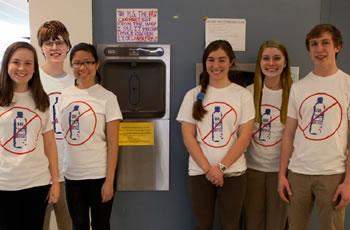
2014 President's Environmental Youth Award (PEYA) Recipient
Lincoln-Sudbury High School Environmental Club
Nashua, NH
The Environmental Club at Lincoln-Sudbury High, consisting of Savannah Snell, Michael Bader, Brianna Bisson, Grace Chin, and Clara Cousins, has worked to bring awareness of climate change to the 1600 students at their school, and to promote the use of reusable water bottles and recycling. The group raised money to purchase 2 purified water fountain refilling stations for the school, with the goal of decreasing and eliminating the sale and use of one-use plastic water bottles, and reduction of overall plastic waste at the school. The group started off its project with a water taste test, the results of which showed that, despite common belief, water from water fountains can taste just as good as water from one-use bottles, so long as the temperature of the water is held constant. The group then set about fundraising to purchase the water bottle refilling stations. For their first fundraising project the club organized and raffled off "green" baskets, raising $750.00. For their next fundraiser, the students partnered with Next Step Living to conduct home energy audits. Each audit nets $10.00 for the school, and the club has raised more than $1200 to date toward the purchase of the 2 water fountain refilling stations. The students in the environmental club have learned that they have the power to take positive action to make a difference in their local environment, and they have led the students in their school to the awareness of the power of positive individual action for community change. Additionally, by partnering with Next Step Living, many homes in the communities served by the school benefited from the efficiency assessments, and consequently are using less energy to heat and light homes. The actions of the club to reduce their school's plastic waste stream and help the communities learn how they could save money on home energy bills have reduced the carbon footprint in their community. Each year's club builds on the momentum of the previous year's group, and students carry on leadership skills they've learned as they graduate and move on to college and careers. These five students know they stand on the shoulders of the club leaders who came before them, and the model leadership for their younger peers in the club.

Champion of Change
Environmental Education and Literacy
Gina Fiorile
Gina Fiorile is a freshman Environmental Studies major and Aiken Scholar at the Rubenstein School of Environment and Natural Resources at the University of Vermont. Her passion for the environment developed in high school, where she took a leadership role in many projects related to waste reduction, environmental education, and climate-change mitigation. Gina was instrumental in planning the annual Adirondack Youth Climate Summit, which has now been adopted in locations across the country as a model for environmental education. Gina was a featured student in a recent PBS documentary that followed the Adirondack Youth Climate Summit and its efforts to reduce the effects of climate change in the Adirondack Park of Upstate New York. She represents the many students and youth who are committed to climate justice and the protection of our future environment. For her extraordinary work to enhance climate education and literacy across the country, Gina was honored by the White House as a Champion of Change for Climate Education and Literacy. We are proud to recognize her here today.
Special Recognition
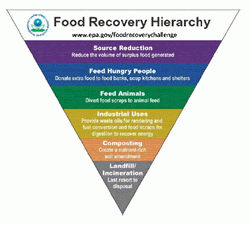
2014 National Food Recovery Challenge New England Award Winners
The Food Recovery Challenge (FRC) is part of EPA's Sustainable Materials Management Program, which seeks to reduce the environmental impact of materials through their entire life cycle, including how they are extracted, manufactured, distributed, used, reused, recycled, and disposed. Through the FRC, the EPA is partnering with organizations and businesses to prevent and reduce wasted food. Challenge participants save money, help communities, and protect the environment by purchasing less, donating extra food, and composting.
In 2013, EPA's Food Recovery Challenge participants nationally diverted more than 370,000 tons of wasted food from entering landfills or incinerators. Of this total, more than 36,000 tons of food was donated to feed people in need, which equates to nearly 56 million meals. The U.S. Department of Agriculture estimates that wasted food costs America more than $165 billion annually and that the average family of four throws away $1,600 of food each year. The Food Recovery Challenge participants and endorsers, through innovation and hard work, have greatly reduced wasted food. Food pantries, food rescue programs, local food banks, soup kitchens and shelters are benefitting from donations of wholesome and nutritious food — helping feed people, not landfills. The National Award winners represent the highest percent increase in food waste diversion over the previous year in their given categories.
National Food Recovery Challenge Award Winner: College and University
Worcester State University
Worcester, MA
National Food Recovery Challenge Award Honorable Mention: College and University
Wellesley College
Wellesley, MA
National Food Recovery Challenge Award Honorable Mention: College and University
Other Sector
Parkland Medical Center
Derry, NH
2014 National WasteWise New England Award Winners
WasteWise helps organizations and businesses apply sustainable materials management practices to reduce municipal and select industrial wastes. Nationally, WasteWise participants reported preventing and diverting a total of nearly 7.6 million tons of waste from being disposed in landfills or incinerators in 2013. This amount of waste diversion represents a reduction in greenhouse gases equivalent to taking more than 2.3 million passenger vehicles off the road for one year.
The National Award winners represent the highest percent increase waste diversion over the previous year in their given categories.
National WasteWise College/University, Partner of the Year
University of Southern Maine
Portland, ME
National WasteWise Non-Profit Organization, Partner of the Year
Dana-Farber Cancer Institute
Boston, MA
National WasteWise Non-Profit Organization, Honorable Mention
Norwalk Hospital
Norwalk, CT
Environmental Education Action Week Award Winners
This week, the week of April 20 to 24 is National Environmental Education Week, the nation's largest environmental education event. Established by the National Environmental Education Foundation, the week connects educators with resources that will give students a better understanding of the environment and open them up in new ways to engage in the world of science. Through environmental education, students learn to understand the science of environmental stewardship, and of climate change. They learn to critically analyze and identify effective solutions, an education that equips them to become informed and effective environmental stewards.
The Environmental Protection Agency helps students engage in studies that can spark an interest in science and the environment. Environmental education lets them look at environmental challenges and be part of the solution. Through environmental education grants, EPA awards up to $3.5 million each year to school districts, local governments, universities, tribal education programs and others to support projects promoting awareness, stewardship and skill building. Exceptional student achievement is recognized through the President's Environmental Youth Award (PEYA).
Recognizing that educators play an essential role in shaping environmental and climate leaders of the future, EPA supports quality environmental education and recognizes dedicated educators. Each year EPA partners with the White House Council on Environmental Quality to present a Presidential Innovation Award for Environmental Educators. Through science, technology, and environmental education, EPA and the Obama Administration are working together to create a workforce prepared for a clean energy economy. In February 2015 the White House honored eight local heroes as "Champions of Change for Climate Education and Literacy". These Champions inspire students, educators, and citizens to learn about climate change and come up with solutions.

Safer Choice Label Program
The US Environmental Protection Agency this spring launched a new system to help consumers find cleaning and other products that are safer for themselves, their families, their pets and the environment. The new Safer Choice label helps consumers protect the public health and the environment by identifying and selecting products with safer chemical ingredients, without sacrificing quality or performance. More than 2,000 products now qualify to carry the Safer Choice label. Safer Choice products are available for homes and for use in businesses like schools, hotels, offices, and sports venues. For the past 15 years EPA's label for safer chemical products has been known as the Design for the Environment, or the "DfE," label. EPA spent more than a year collecting ideas and discussing new label options with stakeholders, such as product manufacturers and environmental and health advocates. Then we took our ideas to consumers and asked what worked best for them. The result is the new Safer Choice label. EPA's Safer Choice labeled products will be in stores later this spring, and every ingredient in these products has been reviewed by EPA scientists. Products labeled Safer Choice are better for pets, the environment and all of us.
Special Thanks

Our Accompaniment Ray Cavicchio and his amazing invention, the Cavichord
Ray's musical career started in Hollywood at age 16 as a marimba artist on the Lawrence Welk Show. Although the producers wanted Ray and his brother, Rob, to stay on with the Welk show, the offer was politely declined due to their college aspirations. Ray has a Ph.D. from Tufts in Psychology-Medical Engineering, and is a patent holder. He is a photographer, computer-graphic artist, and an instrument-rated private pilot.
Ray had classical piano lessons from age 8 to 12, followed by some marimba lessons from his dad, Salvy, a virtuoso featured on several popular radio and TV shows in the 1940s and 1950s. Salvy's brother, Dan, gave Ray an accordion when Ray was in college. Ray soon rigged the accordion with an electronic bass device using circuitry copied from an organ pedal-board. Unfortunately, a few years later this unique accordion was stolen along with the special bass device. However upsetting it seemed at the time, technology had evolved, and Ray patented an innovative circuit, incorporating several improvements, thus paving the way for his ultimate keyboard instrument, the Cavichord.
The Cavichord
A standard accordion has bass and chord buttons on the left side, and a piano-style keyboard on the right. The Cavichord makes good use of this intrinsic triple-section design while adding a fourth section of melody derived from the highest note played with the right hand. Each of these four sections can play a unique combination of sounds simultaneously depending on how the Cavichord is squeezed. With practice it can sound and feel as though there were a symphony orchestra under one's fingertips with each section responding independently yet harmoniously. Therefore, all of the music is fundamentally live at all times.
You will hear the exhilarating sound of a harp glissando. No other keyboard in the world has this feature. These arpeggios were recorded live as Ray played them. He invented special circuitry that allows reproduction of these arpeggios at will using the chord buttons of the Cavichord.
We welcome Ray Cavicchio and his Cavichord—an Environmental Merit Awards Ceremony tradition.

Rivanna Natural Designs, Inc.
Green awards for your next green event
At Rivanna Natural Designs, we believe products that express gratitude, reward performance, and celebrate excellence should harm neither the planet nor the people who create, purchase, or receive them. We are honored to create these awards for the EPA's New England Region. The glass for the awards comes from a 100-year-old family-owned artisan glass company in West Virginia that transforms crushed bottle glass. The ebony glass awards are smooth, rich, and sandblast flawlessly. It's difficult to believe they are made from glass dust that would otherwise be considered hazardous waste.
The central principal of our business is that, in its every aspect, our work must reflect our strong obligation to our clients, coworkers, community, and environment. A certified woman-owned business and B Corporation, we participate in a number of voluntary programs aimed at minimizing our environmental footprint, including EPA's Green Power Partnership and EnergySTAR™ for Small Business.

